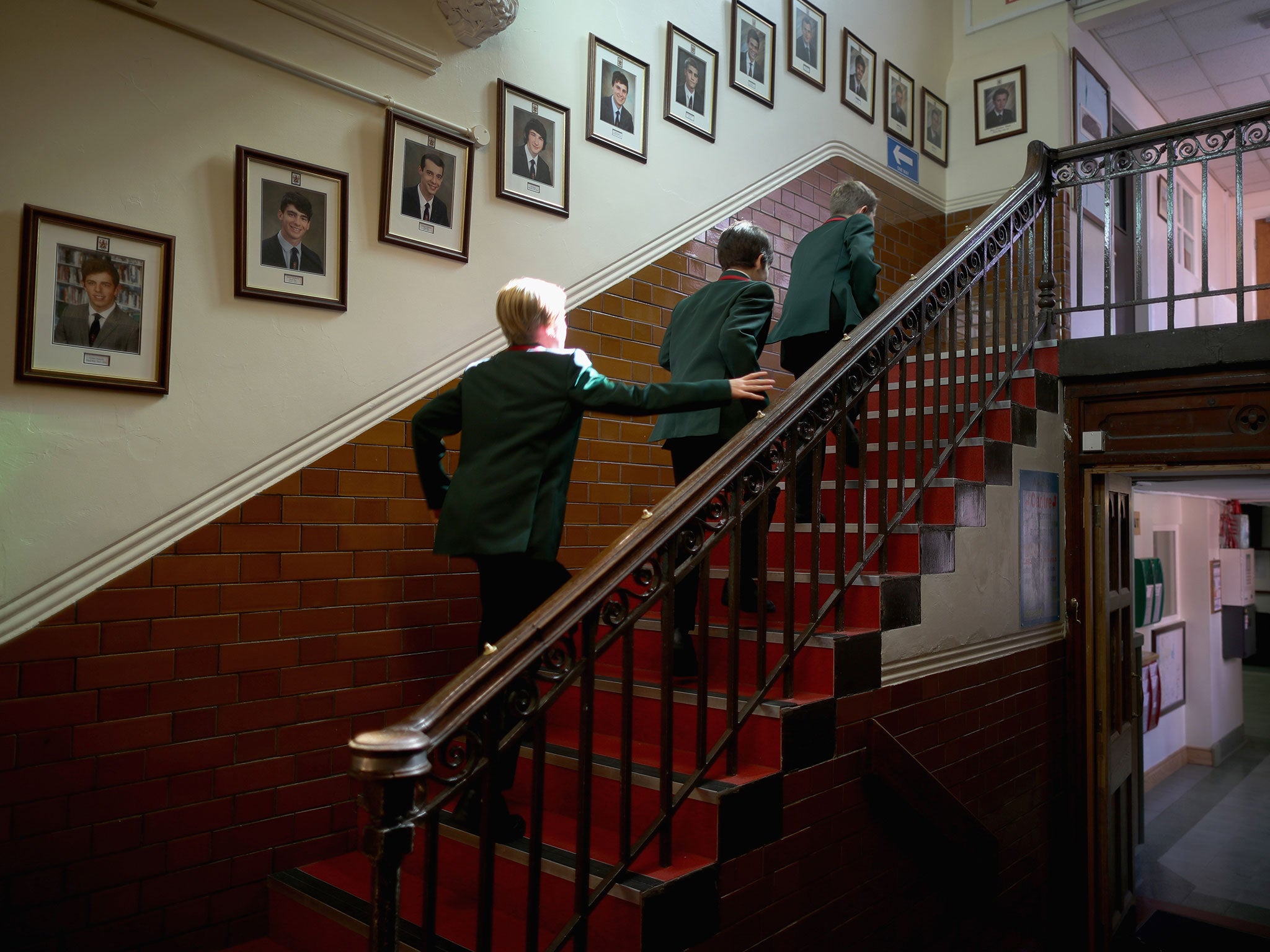Grammar schools could be reintroduced through the back door, campaigners warn
Multi-academy trusts will be able to move their brightest pupils to ‘centres of excellence’

Your support helps us to tell the story
From reproductive rights to climate change to Big Tech, The Independent is on the ground when the story is developing. Whether it's investigating the financials of Elon Musk's pro-Trump PAC or producing our latest documentary, 'The A Word', which shines a light on the American women fighting for reproductive rights, we know how important it is to parse out the facts from the messaging.
At such a critical moment in US history, we need reporters on the ground. Your donation allows us to keep sending journalists to speak to both sides of the story.
The Independent is trusted by Americans across the entire political spectrum. And unlike many other quality news outlets, we choose not to lock Americans out of our reporting and analysis with paywalls. We believe quality journalism should be available to everyone, paid for by those who can afford it.
Your support makes all the difference.Ministers have been accused of paving the way for more selective schools through the back door, skirting around what would be a risky vote in Parliament.
Campaigners against grammars have seized on a clause in Government proposals to allow multi-academy trusts (MATs) to create a single “centre of excellence” within their chain of schools.
They fear the trusts will move their brightest pupils into that centre – which will, effectively, become a grammar – while less academic children will be shunted to other sites
Becky Allen, director of the think-tank Education Datalab, said: “I think [the Government] could circumvent the need for legislation to go down this route of selection within MATs.”
The back door route to selection has been uncovered by the online magazine Schools Week, which has highlighted how the Department for Education (DfE) has shifted its ground.
In March, Schools Week was told that schools could not select by ability and that any trust found to be moving its pupils around on this basis would be investigated for a breach of the school admissions code.
But it says the DfE appears now to have abandoned that stance, arguing instead that pupils of both low and high ability could be moved between schools in a multi-academy trust.
The green paper introduced by Education Secretary Justine Greening stated moving the brightest pupils into a “centre of excellence” is “permissible”.
Schools Week has been told that, providing pupils remain on the roll of the school they were admitted to – and receive some of their education there – schools could teach pupils at another school or site.
It quoted the DfE saying a school move should not be done without parental consent, but failing to state what action would be taken if parental consent was not granted.
But the DfE said it was wrong to say that it had changed its stance since March, because it had always been the case that MATs - and all schools - are able to stream by ability.
A spokeswoman said: “Streaming pupils by ability is, and has always been, allowed at all schools, and helps teachers give every child an appropriately stretching education.
"Multi-academy trusts (MATs) have always been able to pool their resources to deliver these benefits on a larger scale and across different sites within the trust, and we want to see more do this.
“The law is clear that trusts must not select pupils by ability at the point of admission, and streamed pupils must continue to receive some of their education at the school they are registered to.”
However, Schools Week believes parents of pupils selected to enter a “centre of excellence” would consent to their child moving, arguing this would effectively turn the trust’s remaining schools into secondary moderns.
Multi-academy trusts are believed to be uneasy about selection but, last week, Sir Dan Moynihan, chief executive of the Harris Federation, said he might be convinced to open a selective school.
A DfE spokeswoman said scrapping the ban on new grammar schools would “provide stretching education for the most academically able, regardless of their background and help to eliminate the attainment gap between disadvantaged pupils and their peers”.
She added that “there will be strict conditions that grammar schools must make sure they improve the education of pupils in every other part of the system”. Theresa May is faced with possible defeat on her first flagship policy, after more than a dozen Tory backbenchers criticised grammars, some warning of the “stigma” for pupils denied places.
Join our commenting forum
Join thought-provoking conversations, follow other Independent readers and see their replies
Comments